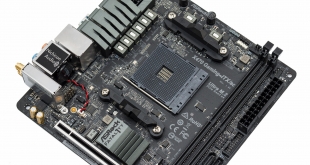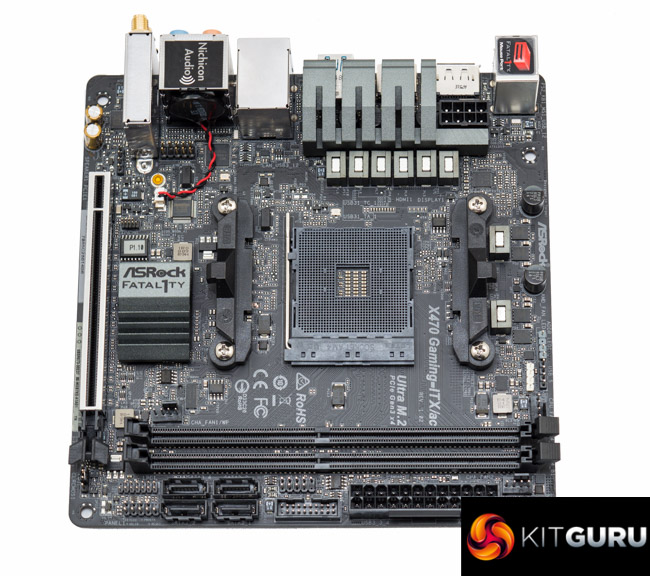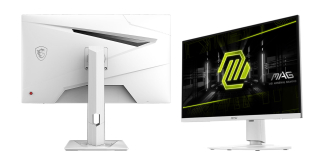
The mini-ITX motherboard market was long dominated by Intel due to the company's indisputable advantage in CPU power efficiency, an essential characteristic for small form factors. That was until AMD introduced its game-changing Zen CPU architecture in early 2017 and now, with Zen in the second generation, AMD mini-ITX solutions are as competitive as ever. ASRock is the ideal motherboard manufacturer to capitalise on this recent trend with its new Fatal1ty X470 Gaming-ITX/ac, having established itself as a pioneer of mini-ITX solutions.

As with most X470 motherboards ASRock's Fatal1ty X470 Gaming-ITX/ac is similar to the preceding X370 version, but with a number of subtle variations and improvements including a more neutral colour scheme, USB 3.1 connectivity and an improved integrated WiFi module. ASRock has long been moving away from its vibrant colour schemes, specifically red for its Fatal1ty products, and its new X470 ITX solution further cements the company's trajectory.
Given that AMD's AM4 platform currently supports up to eight-core CPUs, such as the Ryzen 7 2700(X), 1800X and 1700(X), AM4 mini-ITX solutions are more computationally capable than Intel Z370 equivalents where the current best performing CPU is the six-core Core i7 8700K, even if Intel's i7 often comes out victorious in real-world gaming benchmarks.
For prospective buyers with more serious CPU requirements for a compact design, ASRock's own X299E-ITX/ac motherboard offers a novel solution for fitting up to 18-cores of Skylake-X power into a mini-ITX form factor – but this comes with its own set of limitations and is hardly a mainstream solution.
To the budget conscious buyer an AMD Ryzen 7 2700X and ASRock Fatal1ty X470 Gaming-ITX/ac is more affordable than an Intel Core i7 8700K with a mini-ITX motherboard of equivalent stature, such as the ASRock Fatal1ty Z370 Gaming-ITX/ac.
So does the ASRock Fatal1ty X470 Gaming-ITX/ac make an ideal foundation for a Ryzen 7 CPU? Let's find out more in the KitGuru testing and analysis.
| ASRock Fatal1ty X470 Gaming-ITX/ac | |
| Form Factor | mini-ITX, 17cm x 17cm |
| CPU Socket | AMD AM4 |
| Chipset | AMD X470 |
| Memory | DDR4, 2 DIMMs up to 32GB, up to 3466MHz+ with OC |
| On-board Graphics | Radeon Vega Graphics (Supported APUs only) |
| Discrete Graphics | Single Graphics Card Configurations only |
| Expansion Slots | 1 x PCIe 3.0 X16 (x16 from Ryzen 1st/2nd Gen CPU, x8 mode only with 7th Gen A-Series or Athlon) |
| Storage | 4 x SATA III 6Gbps (via AMD X470 chipset) 1 x M.2 up to 2280 (PCIe 3.0 X4 32Gbps or SATA III 6Gbps) |
| USB | 2 x USB 3.1 (2 Rear, 1 Type-A and -C, both via AMD X470 chipset) 4 x USB 3.0 (2 Rear, 2 Front, all via AMD X470 chipset) 4 x USB 2.0 (2 Rear, 2 Front, all via AMD X470 chipset) |
| Networking | Intel I211-AT Gigabit Ethernet Intel 802.11ac 2T2R 1733Mbps WiFi (Intel 9260NGW) with Bluetooth 5.0 |
| Audio | Realtek ALC1220 7.1 channel HD audio |
| RGB | 1 x 5v Digital header 1 x AMD LED Fan header (12V G R B type) No onboard RGB LEDs |
| Fan Headers | 3, all support 3/4 pin fans (1 x CPU 1Amp, 1 x CHA 1Amp, 1 x CHA/W_PUMP 2Amp) |
| Rear I/O | 2 x Antenna Ports 1 x PS/2 Mouse/Keyboard Port 1 x HDMI 2.0 Port 1 x DisplayPort 1.2 1 x Optical SPDIF Out Port 2 x USB 2.0 Ports 1 x USB 3.1 Gen2 Type-A Port 1 x USB 3.1 2 x USB 3.0 Ports 1 x RJ-45 LAN Port 5 x HD Audio Jacks |
| UEFI | 1 x 256Mb UEFI AMI |
 KitGuru KitGuru.net – Tech News | Hardware News | Hardware Reviews | IOS | Mobile | Gaming | Graphics Cards
KitGuru KitGuru.net – Tech News | Hardware News | Hardware Reviews | IOS | Mobile | Gaming | Graphics Cards


